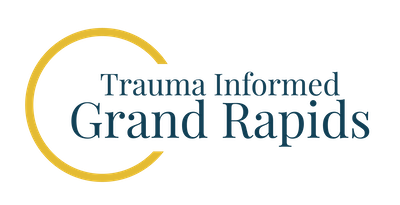Speaking & Trainings
Live or Online Training
Ginny has trained hundreds of therapists, educators, church staff and other organizations on a variety of topics related to stress and trauma.
The trainings are based on current research, life stories, and simple practices that can be used with clients or individuals.
Trainings are most commonly given in 2, 3, or 6 hour blocks. Friday “Lunch & Learn” trainings have been very popular.
Trainings are prepared for your specific group. CEs and SCHECH’s are available for therapists and educators. If you have a specific topic that you are looking for please contact us and we can discuss the topic and details. Below is a list of past and current topics.
Most requested speaking topics include:
- The Polyvagal Theory for Improved Therapies
- The Polyvagal Theory for Improved Behavior
- Grief
- Emotions: Where They Come From & How to Manage Them
- Compassion Fatigue: How to Recognize and Manage it
- Behavior Regulation for Improved Student Behavior
- The Nervous System as the Foundation of Self-Care
- Tools to Regulate: Which One and When?
- Understanding Stress and Trauma: The Brain – Body Connection
- Infant Mental Health: Development & Needs
- The Effect of Abuse & Neglect on Children
- Post Traumatic Growth
- Pain Management & Compassion Fatigue
- Trauma: What It Is & How to Work With It
- What is Trauma Informed Care
- Understanding Trauma In the Workplace
- Aging and Grief
- Trauma Informed Churches
Past Trainings: Portfolio of Presentations
The Polyvagal Theory & The Social Engagement System: How Our Physiology Shapes Our Behavior
This two-hour course will introduce you to the foundations of the Polyvagal Theory (Dr. Stephen Porges), the Social Engagement System, and tools we can use to regulate ourselves or others. The evolution, development, and function of the human social brain will be presented with application to clinical work, education, and personal understanding. The why and how of regulating our autonomic nervous system will be discussed in relation to social engagement, self-regulation, and co-regulation. You will leave with a better understanding of how the vagus nerve supports trust, social engagement, and improved relationships. Five simple regulatory tools you can use immediately yourself or with others will be presented.
Grief
This event will include a 3-hour grief training with lunch and an opportunity for connection with fellow therapists. The grief training will be presented by Dr. Ginny Witte. This training will focus on the different types of grief experienced, effects of grief on the brain, nervous system, and our biology, and practices used to help individuals begin remapping their nervous system for healing. This training is approved for 3 continuing education credits.
Infants and Mental Health
The first year of life is a time of rapid development. It is a time when infants learn to both express and navigate emotions, their relationships, and develop healthy attachments. Let’s discover the exciting changes during this time of life. We will discuss the effects of early adversity on behavior and development. We will look at the differences between early adversity and later adversity. Let’s talk about how we can support infant mental health by recognizing when infants might be struggling and how we can support healthy development through nurturing strong and healthy nervous systems.
This training is for…
Therapists
Gain a deeper understanding of trauma, current research related to trauma, and best practices for working with clients. Each client has their individual experiences, culture, and concept of self. Topics share current research with the nuances of each client. CE’s available.
Doctors, Nurses, First Responders, and Medical Staff
Learn how trauma can better connect you with patients and the root cause of chronic illnesses for better treatment plans and improvement in patient health. Health care providers need to be knowledgeable about the impact trauma has on mental and physical health. Trauma can be as much biology as it is psychology.
Groups or Organizations
Learn to understand the behavior of employees, clients, and individuals you work with to create connections, prevent trauma, and support those going through traumatic times. Learn how staff at all levels can modify the workplace to be preventative and supportive of trauma survivors or those going through traumatic periods in their lives.
Communities
Schools
Churches
Training Overview:
Would you like your practice to be knowledgeable in important aspects of trauma therapy?
Would you like to be part of a trauma informed community to better meet the needs of your clients?
Would you like to learn tools and practices to use with your clients?
Join us for one of our popular speaking topics listed above, or contact us to discuss a topic that adds to the scope of your work. We are happy to work with you to create a training that meets your specific needs.
Research is showing us that to understand mental health and wellbeing we need to understand trauma. Everyone experiences traumatic events in their life, yet not every experience needs to remain as trauma. We will help you understand how our biology and physiology are affected by trauma and how we can use each of these aspects to work with trauma.
There are many forms of trauma, and many ways of working with trauma. We can help you with these nuances as you learn how the brain and body work together with development and our emotions to keep us balanced or dysregulated.
Join us for a lively discussion and learning experience that will help you understand yourself and your clients on a deeper level. You will be so happy that you did!
Snapshot:
Where:
LIVE: in person or on zoom. Live classes are conducted at your facility.
Length:
The length of the training varies depending upon the training topic and your time allowance. Generally trainings are in 2, 3, or 6 hour sessions.
Times:
Training can be scheduled during weekday hours, evenings, or weekend workshop sessions.
Friday “Lunch and Learn” sessions have been popular for those with busy week schedules.
Continuing Ed Credits:
Continuing Education Credits (CEs and SCHECHs) are available upon request. We are happy to discuss other continuing education credits with you.
What People Are Saying
Dr. Witte’s presentation was well prepared. She clearly loved her work and was receptive to questions and feedback. The presentation was well planned in order to develop key concepts in the allotted time and respond to questions and comments. This was the best course that I have attended in the last year when I rate accessibility, handouts, development of ideas and presenters responsiveness to attendees.
I appreciated the instructor’s comments and added input. She followed her presentation but added so much valuable knowledge. Plus learning about how stress applies to everyone and is different than trauma. Stress should be understood for the good and bad contributions to our lives.
I appreciated everything!! It was excellent…
The clear connection between research and practice. The practices we went through to experience the benefits first-hand.
Make it longer— great information— instructor was interesting and presentation was smooth— not rushed— very comfortable.
The program was wonderfully helpful!
This could be an all day presentation.
Training Provided To









OUR Mission
To foster healthy and resilient communities where all people can heal and thrive through connection, education, resources, and combined effort.
